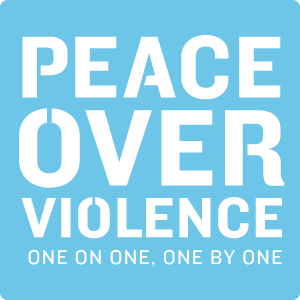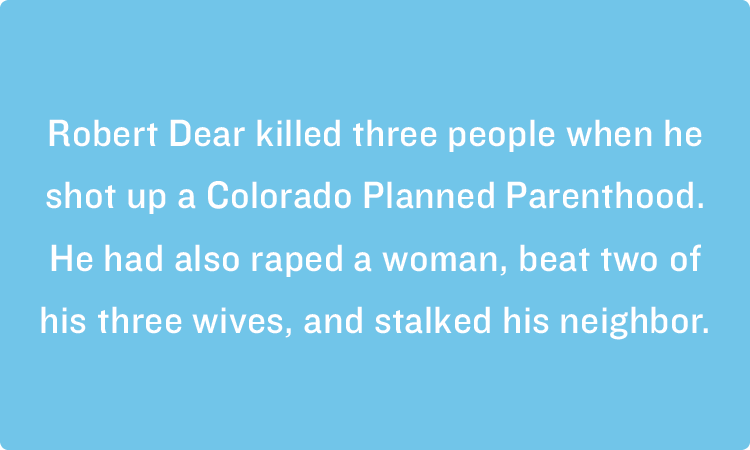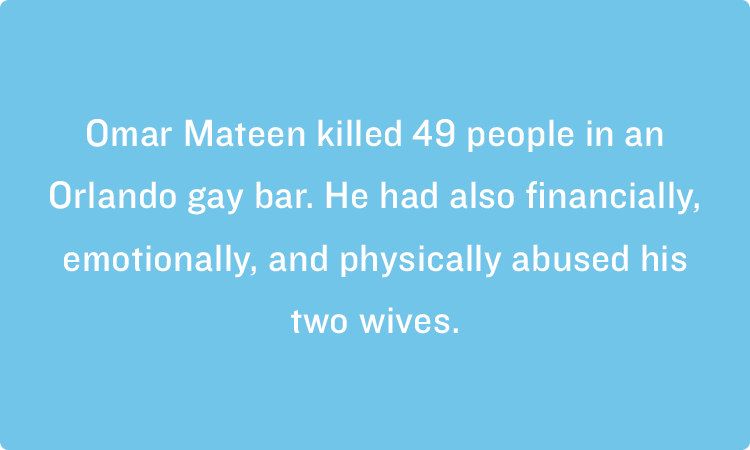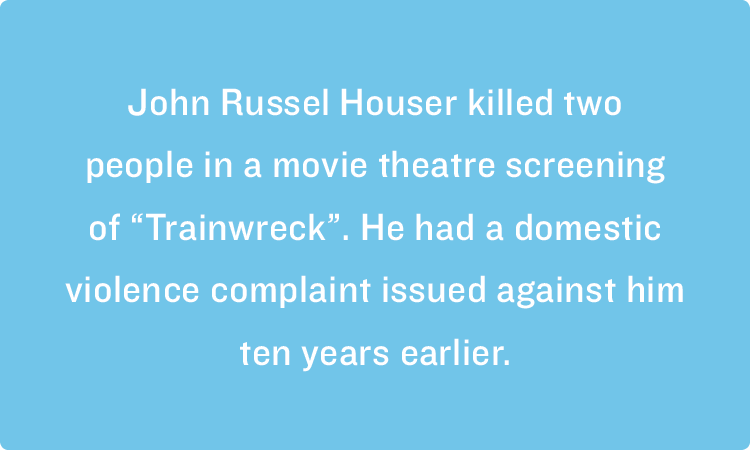We Cannot Talk About Gun Violence Without Talking About Violence Against Women
There is an epidemic of men who hate women so much that they have decided to use guns to kill masses of innocent people. And we can no longer ignore it.
After killing his female neighbor who already had a restraining order out against him, Kevin Neal then went on a shooting rampage in Northern California. Today we learned that the night before he had shot and killed his wife. Nine days earlier, Devin Patrick Kelley, a 26-year-old man with an extensive history of domestic violence, sexual assault, hurting animals, and child abuse, shot and killed 26 people in a Texas church.
Let’s look at the facts:
54% of mass shootings are related to domestic violence. In the US, 50 women are shot to death a month by intimate partners
Women in this country are 16 times more likely to be killed with a gun than other developed countries
When a gun is present in a domestic violence situation, the woman is five times more likely to be killed.
We cannot talk about gun violence without talking about violence against women.
For too long domestic violence has been misunderstood and trivialized. Despite the fact that domestic violence is so common, it tends to be hidden or excused because it is something that happens inside, in privacy, within the confines of the home. It is seen as a private issue, a family spat. Domestic violence is minimized in comparison to more public forms of violence. However, we can no longer ignore the fact that domestic violence is killing more than the direct and intended victims: it is killing random strangers. The home is no longer a safe space. But now neither are churches - or movie theatres - or concerts. It is a violent, criminal act that is killing our people. It is an issue of national security.
Men have felt entitled to women and their bodies since time immemorial. And when women have met this entitlement with any response other than gratitude and submission, men have not known what to do with themselves. They have learned to express their vulnerability through violence. There is a word for this: toxic masculinity. Toxic masculinity, as defined by Professor Terry Kupers, refers to “the constellation of socially regressive male traits that serve to foster domination, the devaluation of women, homophobia and wanton violence.”
Thus, when men abuse women, they often do so without consequence. They are not classified as dangerous, they are rarely even classified as criminals. A man who strangles his wife is not a criminal, he is a man. After serving a year of confinement for an assault charge, Kelley was discharged from the Air Force and moved onto his parents’ property. While there, he was investigated twice for violence against women. In 2013, he was investigated for rape. These investigations did not result in a conviction. In fact, charges weren’t even filed. Less than a year after the report of sexual assault, police were called when Kelley’s then girlfriend told her friend over text that he was abusing her. The responding deputies told the dispatcher that it was just a “misunderstanding and teenage drama.”
This man was repeatedly allowed to injure and batter women with no consequences or intervention. This man is not an anomaly, someone who slipped through the cracks. Eighty-five percent of domestic violence victims are women. Three women are killed a day by a current or former male partner. In contemporary America, Devin Patrick Kelly is the norm.
The continuous shootings reveal that the there is a systematic issue when it comes to the way this country handles cases of domestic violence. Domestic violence is a root cause of of mass shootings, which makes domestic violence a national security issue. And until we treat it as such, until we teach our men how to heal, people will keep dying.
By the time Kelley was 26 years old, he already had two ex-wives, which means teen dating abuse was happening. It is crucial for us to invest our time and energy into youth. We need to remedy the violence that youth have inherited, providing tools for them to break the cycle of violence even before they become adults. Violence is learned behavior. And if it can be learned, it can also be unlearned.
Hannah Denyer
Rape Prevention Education Coordinator, Peace Over Violence
Hannah Denyer is the Rape Prevention Education Coordinator at Peace Over Violence. She works to educate the community on Teen Dating Violence, Sexual Assault, and Domestic Violence. Hannah has a MA in Critical Methodologies from Kings College London where she wrote her dissertation on Feminist Aesthetics. In her spare time, Hannah likes to read in the sun at Barnsdall Art Park.









